Episodes

Sunday Apr 19, 2020
Thanks to Pat Flynn!
Sunday Apr 19, 2020
Sunday Apr 19, 2020
I had the privilege of being on the Pat Flynn show on Holy Saturday (episode here). Pat comes from the worlds of both fitness / bodybuilding and philosophy and puts out new episodes nearly every day on those topics. He is a revert / convert to the Catholic faith and has an intriguing life story. If you're not familiar with him, definitely go over and fish in his well-stocked pond for topics of interest. You would do well to listen in to his conversation with Jared Zimmerer of Word on Fire, for starters! He has also had Society of Catholic Scientists (SCS) president Stephen Barr on not once, but twice.
Happy Divine Mercy Sunday, everyone. Bill and I will be back with another episode (or two... depending on how chatty we get) next week.
If you happen upon this post as a Pat Flynn fan, may I suggest checking out our homepage where you can find links at the upper right to our interviews with many members of the SCS, especially speakers at the 2019 SCS Conference, and to a list of other popular episodes.
If the SCS specifically intrigues you, they have a ton of media, like videos of talks both at SCS Conferences and elsewhere, and an impressive archive of biographies of Catholic scientists. Definitely go to their homepage to learn more.
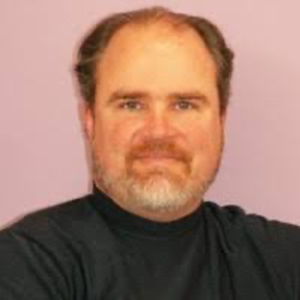
Monday Apr 13, 2020
Episode 099 - Secular Franciscans on World’s New Views, Old Values
Monday Apr 13, 2020
Monday Apr 13, 2020
In this episode, Bill presents excerpts from an interview with fellow Secular Franciscan Tim Short, director of formation for the Indiana Region. They discuss, among other things, St. Francis' attitude toward creation and how it relates to the larger picture of the medieval Christian intellectual world and the birth of modern science.
- Tim Short, OFS, is a member of the Secular Franciscan Order, whose initials in Latin are OFS. This international, canonically approved Roman Catholic order was founded by Saint Francis of Assisi especially for laypeople. Members belong to local, regional and national fraternities. Tim is the director of formation for the Our Lady of Indiana regional fraternity. He previously served as formation director for the Immaculate Conception local fraternity of the Order (still commonly abbreviated as SFO in the United States), located in Mishawaka, Indiana.
- Tim and podcast cohost Bill Schmitt are both professed members of the SFO, having professed a lifetime commitment to the Rule of Life which St. Francis composed. Francis also composed rules to govern orders of friars and nuns, the latter commonly called the Poor Clares.
- Tim has been instrumental in starting a new website that will serve SFO fraternities’ needs for “ongoing formation.” Find this “OFS Ongoing” website at https://secularfranciscansusa.org/ongoing-formation-resources/ When you visit the site, you’ll see a major resource Tim composed for a series of small-group discussions that can be used by any fraternity but was used first by the fraternity in Mishawaka. The resource, “A Journey Through John,” is based on the Gospel of John and reflects the importance Secular Franciscans are to place upon the Gospels as keys Francis used in building an intimate relationship with Jesus Christ. Resources drawn from Franciscanism, Pope Francis, and the beloved “Peace Prayer of Saint Francis” have been composed by Bill Schmitt and are also described at the new website.
- Other priorities in formation include an ever-deeper embrace of the Rule of Life and of the early writings from St. Francis and his friars who provided authoritative insights into the foundational Franciscan charisms.
- Tim pointed out in our interview that Saint Francis lived during a time when the old ethos made little distinction between Catholic religious thinking and what we would call scientific thinking. A time of greater doubt and division was emerging during Francis’ lifetime (circa 1180-1226). Francis’ sense of mission emphasized peacemaking, healing, and an embrace of natural life in all of creation, so one can see him as a bridge-builder encouraging love and awe for circumstances we would deem ripe for scientific analysis.
See more of Tim's work at ofsongoing.com.
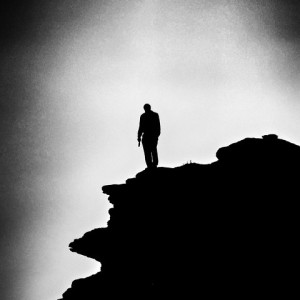
Monday Mar 23, 2020
Episode 097 - Social Distancing and Loners in the American Psyche
Monday Mar 23, 2020
Monday Mar 23, 2020
Bill and Paul discuss the topic on everyone's mind, the coronavirus and social distancing, through the lens of social polarization and isolation that already so characterized American, Western, and modern society in general.
- One should not assume that “social distancing” breaks connections. Paul and Bill got together to talk about the subject and found that it connects to many other things, at least as an intellectual exercise. But also with many emotional, spiritual and sociological implications.
- Bill said that, upon first hearing about “social distancing,” he instinctively connected it to a phenomenon he ponders and writes about a lot—the phenomenon of social polarization. (He writes about it in his OnWord blog, and in 2018 he wrote a book (When Headlines Hurt: Do We Have a Prayer?) reflecting on Pope Francis’ concerns about the polarizing effects of contemporary news and digital information flows.
- Social distancing, apart from the validity of scientific claims that it is needed to combat the COVID-19 pandemic, looked to Bill like a physical, societal manifestation of the polarization trend which leads to the isolation, exclusion and defamation of people. It encourages them toward confirmation bias because they choose to hear only the opinions that back up their pre-conceived notions.
- Paul said social distancing also seems to tie into America’s infatuation with the “loner.” He recalled the self-imposed isolation discussed in Robert D. Putnam’s 2000 book, Bowling Alone.
- Both participants in the conversation connected the concept of loner with many ideas: the modern assumption that being a loner need not carry high risks, like it once did, because of the protection offered by government; the omnipresent promise among colleges that they will prepare their students to become “leaders” as opposed to followers; the observation by Alexis de Tocqueville (in Democracy in America) that Americans of the 1800s were instinctively individualists; and the more recent observation that we live in an age of celebrity when everybody wants to famous, even in relatively impotent, purposeless ways. This latter notion was discussed by Catholic philosopher Peter Kreeft in an episode of EWTN’s “The Philosopher’s Bench.”
- It is especially sad that, at a time when Pope Francis points out that the Church has many valuable responses to the tendency toward social polarization and isolation, “social distancing” has prompted an end to Mass attendance. As remarked in a blog post by David Seitz, OFS, one of Bill’s favorite Franciscan commentators, the loss of civic solidarity and civil conversation is a profound kind of penance.
Image by Austin Monroe from Pixabay.
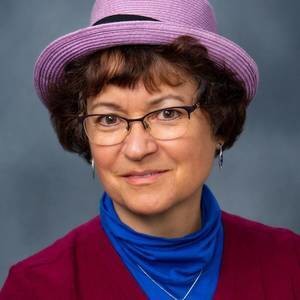
Monday Mar 09, 2020
Episode 096 - How a Strong Nest Can Lift Society Higher, with Darcia Narvaez
Monday Mar 09, 2020
Monday Mar 09, 2020
- We welcome Darcia Narvaez, Ph.D., to the microphone. She is a professor of psychology at the University of Notre Dame, specializing in developmental cognition, the human brain, and behavior.
- She has authored or edited numerous books, including Indigenous Sustainable Wisdom: First Nation Know-how for Global Flourishing (2019); Basic needs, wellbeing and morality: Fulfilling human potential (2018); and Developing the virtues: Integrating perspectives (2016).
- A cornerstone of her research, Neurobiology and the development of human morality: Evolution, culture and wisdom (2014), received the Expanded Reason Award from University Francisco de Vitoria and the Joseph Ratzinger/Benedict XVI Vatican Foundation. The award recognizes innovation in scientific research and academic programs based on Pope Emeritus Benedict’s proposal to broaden the horizons of reason. This expansion questions and incorporates reflections on the anthropology, epistemology, ethics, and meaning that exist within a specific science. The foundation selected her book from among more than 360 entries from 30 countries.
- Prof. Narvaez discusses here the concepts she groups together as “Evolved Nest” perspectives on child development and human flourishing. They serve as a lens for understanding the current state of our society and culture—our “downward cycle” in the collective pursuit of wisdom, morality, and community interaction. You can explore the concepts and their relevance for children, adults, and human ecology at evolvednest.org. She writes about an array of topics connected to this in a widely popular Psychology Today blog called “Moral Landscapes.”
- Based on her research and informed by her diverse experiences (spanning seven careers, as she puts it), she suggests several ideas for recapturing a sense of wholeness amid the woundedness in human nature. Several characteristics of modern society have arisen over the past few centuries to cause the wounds seen today in civic life, communities, families, and individuals, she says. Drawing upon lessons from cultures that existed a long time ago, her suggestions to restore wholeness include such often-forgotten basics as more frequent engagement with nature, thinking new thoughts, journaling, and free-spirited play. “People don’t know themselves,” she comments. “You can get a lot of work done if you take a break.”
- Morgan Burkart is the audio engineer for this third season of “That’s So Second Millennium.” Our original theme music, “Igneous Grok,” is by Vin Marquardt. Paul Giesting, Ph.D., is a geologist, consultant, and public intellectual with a passion for philosophical and theological insights into the world that complement scientific knowledge. Bill Schmitt, MPA, is an independent journalist, consultant, musician, and multimedia content producer in the fields of higher education, engineering, religion, and public affairs.

Monday Feb 24, 2020
Episode 095 - Bridges Built by Song, with musician Micki Miller
Monday Feb 24, 2020
Monday Feb 24, 2020
- Where can the search for connections between faith and science (that is, between the deeper sense of meaning in life we all crave and the tangible experiences that our five senses tell us are “real”) take us? Our podcast series today receives inspirational guidance from community-builder and up-and-coming recording artist Micki Miller. She helped us explore one universe of answers where no TSSM episode has gone before. That’s the realm of music.
- Micki Miller, born to pastors in South Bend, Indiana, writes, sings, and produces R&B and soul music that touches people’s hearts. You might say her work, which you can find on Amazon, You Tube, and Bandcamp, is instrumental in the even bigger picture of her life, grounded in a natural passion to bring people together around the words and sounds of authentic love songs.
- Micki and Bill serve on the board of directors of The Music Village, a community musical arts center and school in South Bend. This growing non-profit organization, known for innovative outreach, celebrates music and cultural expressions rooted in the diverse local and global traditions found in the “Michiana” region—sections of Indiana and Michigan neighboring Chicagoland.
- In this episode, Bill interviews Micki about her experience of connecting faith to minds and hearts with a tool kit that has grown along with her dedication to the power of music. The tools include the talent of a singer-songwriter and keyboardist to share sounds of the past and present, the technological skills supporting her local recording studio at the service of her own band and others, and an embrace of synergies among a wide array of people and imaginations.
- Micki talked with TSSM about the ability of music to keep injecting wonder and fresh thinking that can transcend a silo approach to science, religion, and other topics. She discussed this in the context of a retreat-and-recording session series she attends under the direction of DJ Jazzy Jeff, a producer who collaborates with actor Will Smith. News stories have mentioned Questlove (of The Roots seen on “The Tonight Show”) as an enthusiastic fan of Micki. Micki performs internationally, but her ties to family and friends keep her grounded in her hometown and in her efforts as a South Bend region community-builder.
- Paul mentioned that Bill’s favorite among Micki’s You Tube videos is her original song, “You,” performed at the ChiBrations studio in Chicago. (Paul may possibly mix that name up with the name of a musical group in the introduction.)
Addendum: Paul pointed out the official podcast series of Purdue University’s College of Engineering, “Sounds Like the Future.” Bill says it has been one of the great privileges of his journalism and media-consulting career to collaborate with the College in launching the podcast, and he notes it could not have taken shape without the production skills, academic insights, valued friendship, and “great radio voice” contributed by Paul. New episodes will be posted monthly.
Audio production for this episode by Morgan Burkart.
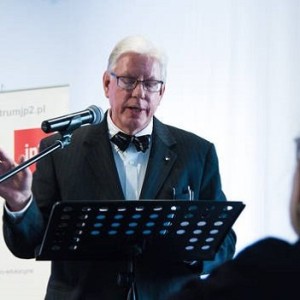
Monday Jan 13, 2020
Episode 092 - Scientists and Religion with Dr. Tom Ryba
Monday Jan 13, 2020
Monday Jan 13, 2020
- Dr. Thomas Ryba is a senior lecturer and adjunct professor teaching philosophy and religious studies at the School of Interdisciplinary Studies in Purdue University’s College of Arts. He also holds the title of Notre Dame Theologian-in-Residence for the Aquinas Educational Foundation, offering instruction and guidance on staff at the Saint Thomas Aquinas Catholic Center at Purdue.
- Ryba kindly adjusted his schedule to meet with Paul and Bill in December 2019 for an interview about themes central to his 30 years of teaching in service to students and faculty and his enduring interest in the connections between the learning of science and religion.
- We discussed trends which suggest today’s cultural and academic emphasis on science-based knowledge draws young people away from their interest in religious insights and practices. He said that, while he’s seen a doubling in the proportion of students who come to college having received no substantive knowledge of traditional faiths, a sizable percentage of people engaged in the hard sciences at Purdue are actively interested in religion. He added he observes a strong ethos of welcoming of diverse people of faith on the campus.
- Ryba is among those planning an academic conference which this year will explore links between articificial intelligence and human consciousness, including ethics for robots.
- His convictions about a long-standing complementarity of insights from science and faith echo his own graduate research, which explored analogs between Girardian mathematical group theory and an understanding of the Holy Trinity in Christian belief.
- In our TSSM interview, Ryba spoke of a Purdue graduate whose studies of physics and electrical engineering have gone hand-in-hand with his preparation for the Jesuit priesthood. Rev. Luis Jimenez, SJ, continues his academic work at the University of Puerto Rico while serving as a priest and lecturing throughout Latin America, he said.

Monday Dec 23, 2019
Episode 091 - Christian Communication
Monday Dec 23, 2019
Monday Dec 23, 2019
Bill and I continue our discussion about parish life and communication. We discuss using the tools of sociology (and just awareness of the broader culture) to understand what is going on in parishes without getting carried away and forgetting that Christianity was always meant to change us (avoiding the Andrew Greeley mistake). We talk a bit about where podcasters like us fit into the ecosystem, or the Kingdom of God for that matter, and in that context I mention the great Catholic Feminist podcast. In the end we return to the question of what we should do as parishoners at the bottom of the ladder of subsidiarity...the only spot where we can truly make a difference.
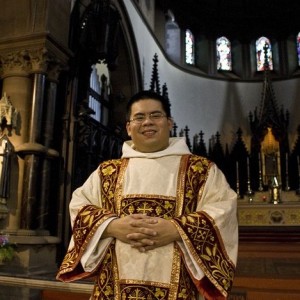
Monday Dec 16, 2019
Episode 090 - Deacons and Communication
Monday Dec 16, 2019
Monday Dec 16, 2019
In this episode, Bill and Paul discuss the role of deacons and others filling the role of "elder" in the Catholic Church, and the need for parishes to work hard at learning how to communicate with each other in this new technologically mediated cultural world. Bill mentions new work by the McGrath Institute to help parishes with this task.
Photo: a deacon wearing a dalmatic, from Test Everything.
Monday Dec 09, 2019
Episode 089 - What Could We Do?
Monday Dec 09, 2019
Monday Dec 09, 2019
Paul, still missing his Watson Bill, opens up a discussion about questions of economics and political science, ranging from rural U.S. parishes to the geopolitics of an ideal future.
This podcast's title and logo were inspired by the "What Should I Do?" discernment retreat put on by the Indy Catholic young adult ministry this past weekend.
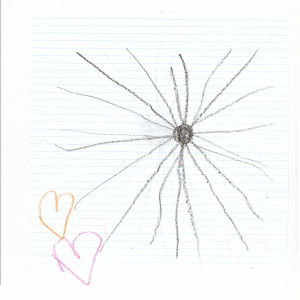
Monday Dec 02, 2019
Episode 088 - The End of the World (As We Know It)
Monday Dec 02, 2019
Monday Dec 02, 2019
For my money, it's harder to believe in the Christian Last Things of life after death, judgment, and the end of the world than it is to believe in the "First Things" of creation and providence. The prophetic and apocalyptic literature of the Bible predict, or seem to predict amid very strange language, some very difficult things to square with our expectations both for the physical universe and for human technology:
- What could this "new heavens and a new earth" possibly be?
- How could Jesus appear in the heavens at the end of time if the human race has colonized multiple planets, or multiple solar systems, or multiple galaxies?
On the other hand, some of the predictions seem very possible, like the world being destroyed by fire (e.g., 2 Peter), which could take the form of several astronomical phenomena or our own nuclear holocaust.
In this episode, Paul sashays a bit into this even less frequented frontier region between science and Catholic doctrine.

